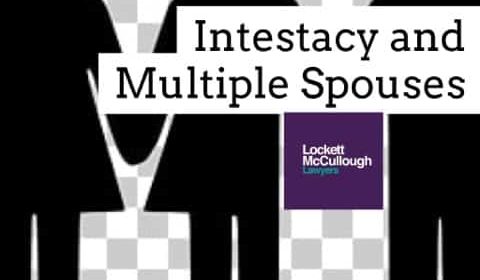

A recent and intriguing case in Victoria has seen a couple barred from claiming a multimillion-dollar estate due to a small ink spot concealing their names as beneficiaries on a will.
Howard Thomas, aged 75, had a three-page will dated in 2011, but a black ink mark obscuring the names of the beneficiaries in two key clauses led the Supreme Court to rule that he intended to revoke his will.
Known to be somewhat quirky, Thomas lived in what his friends described as an “uninhabitable” residence. The will was found by a former colleagues two months after Thomas’ death in his kitchen amongst a pile of dirty papers.
While the court could find no immediate heirs or alternative beneficiaries, the nature of the black markings was seen as indicative of Thomas’s intent to annul the entire will.
The absence of such clarity can lead to unexpected outcomes in estate matters.
Thomas had initially left his estate, worth around $4.46 million, to his close friends, Richard and Deborah Nightingale.
Upon Thomas’s death in July 2021, it was found that he had no immediate family, domestic partner, or children. His only surviving kin were six cousins, one filing for intestacy.
How did the will look?
While the ink mark had almost completely covered the Nightingales’ names in two key clauses, no other alterations or marks were found on the will, leading to the conclusion that Thomas intended to revoke it.
“Assuming the markings on the Will were made by the deceased, I am satisfied that the deceased intended to revoke it” ruled Judge Steven Moore.
Further, “the markings effectively obliterate the names of the executors and the beneficiaries, on its face stripping the will of its essential elements” he said.
As a result of the blot of ink marking out the beneficiaries’ names, Thomas was ruled to have died intestate, leaving his estate’s distribution to be governed by local laws and potentially forfeiting it to the state in the event that there were no other beneficiaries.
Unintentional revocation due to a subsequent marriage, misplacement of the original will, or improperly prepared wills are common reasons for intestacy.
Lawyers often find that testators store their wills in secure places but need to inform people, leading to difficulty locating them.
While such cases are rare, they prove the importance of having an up-to-date, clearly drafted, and easily accessible will.
Make sure you renew your will regularly, particularly after any major life events like a death or divorce in the family.
Make sure your will is being stored at your solicitor’s office and that your executor knows where to find it.
Our office has large safe custody facilities in each of our offices, which are available to our clients to use free of charge.
This ensures that our wills do not get lost or mishandled.
Speak to our experienced estate planning lawyers at Lockett McCullough Lawyers to assist you with writing or re-writing your will.